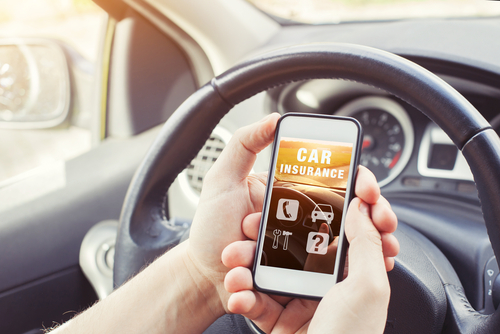Many insurance companies now offer lower rates for customers who basically give up personal information by installing “telematic devices” that track and monitor how the customer drives. If the customer is a safe and defensive driver, they are rewarded with lower rates on their insurance bills.
Telematic devices are installed diagnostic ports, which are usually located beneath the vehicle’s steering wheel. When a customer installs a telematic device in their vehicle, the device taps into the vehicle’s computer systems to capture, store, and transmit data back to the company. Data includes the speeds at which the customer drives, how quickly they brake, and the distances they travel. The high-tech safety features that newer vehicles have allow the devices to collect even more detailed information.
For example, with forward collision warning and automatic emergency braking systems now available, the devices can capture how many times these systems were activated. This information is then transmitted back to the insurance company. When this data is linked to mapping data, the insurance company can also see what the speed limit and traffic signals were on the road the driver was on when the safety system kicked in, as well as whether the driver came to a complete stop at a stop sign or was traveling over the speed limit. They can also determine if the driver is traveling through an area that has a statistically higher rate of crashes or vehicle theft.
Insurance Rates
Currently, these tracking devices are just options that customers can choose if they would like lower rates. Some companies offer the lower rate right away, while others do not offer it until they have six months’ worth of tracking history on the driver. Despite the discounts, however, many customers aren’t opting for these programs. One of the most common reasons cited for not participating is the concern about privacy, especially the location-tracking feature these devices have. Many consumers feel that this loss of privacy and allowing the insurance company to know where they are at any given time is not worth the limited discount on their insurance bills.
Can Data from a Device Be Used as Evidence in a Car Accident?
In many cases, yes, an attorney could potentially use data from an insurance tracking device as evidence in a car accident case. However, several factors would need to be considered.
Consent is one of those factors. The legality of using data from the tracking device may hinge on whether the driver consented to its use and to the collection of data. If the driver agreed to participate in the usage-based insurance program and consented to the tracking of their driving habits, the data may be more likely to be admissible.
The accuracy and reliability of the data collected by the tracking device would also be important considerations. An attorney may be able to challenge the accuracy of the data or the reliability of the device itself, especially if there are discrepancies between the data and other evidence in the case.
The data collected by the tracking device would need to be relevant to the issues in the car accident case. For example, if the accident occurred due to excessive speed, data showing the driver’s speed leading up to the accident could be relevant evidence.
Contact Our Personal Injury Law Firm
A Virginia Beach car accident attorney may be able to use many types of evidence to prove that the other driver was at fault and is, therefore, liable for any losses the victim suffers due to their injuries.
If you have been injured in a crash, contact Shapiro, Washburn & Sharp for a free case evaluation and to learn about your legal options. Our firm is dedicated to getting our clients the financial compensation they deserve, which is why our attorneys have recovered more than $100 million in settlements and verdicts.
